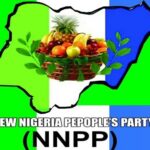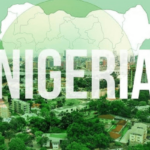Democracy, widely recognised as the most favourable form of governance, has firmly rooted itself in the fabric of Nigerian society. Despite its firm establishment, the democratic process has, at times, been undermined by certain individuals. These so-called ‘accidental politicians’ often lack a genuine interest in governance and ascend to power not through popular vote but through the influence of their political patrons—referred to colloquially as ‘godmothers’ and ‘godfathers’.
This patronage system overshadows the sacrifices made by countless individuals who have paid the ultimate price for the nation’s democratic freedoms. Many citizens remain unaware of these sacrifices, as the narratives of struggle and the historical price paid for Nigeria’s democracy are often lost amidst the political manoeuvring of the present.
Creating a more inclusive and interactive democratic process in Nigeria necessitates the establishment of monthly town hall meetings between elected representatives and their constituents. This initiative would mark a significant stride in fortifying the democratic structure and enhancing the quality of governance in the country.
The town hall meeting, a tradition with deep roots in democratic societies, serves as a public forum where citizens and government officials can discuss community issues, forge consensus, and build a shared vision for the future. For Nigeria, a nation with intricate cultures, languages and interests, such a platform is not just beneficial but essential for the health of its democracy.
For instance, instituting these meetings would demonstrate a commitment to open governance and provide a space for genuine dialogue. This regular interaction would transform the relationship between the electorate and their leaders from one of periodic consultation, often centred around election cycles, to an ongoing conversation that reflects the dynamic nature of societal needs and aspirations.
The direct benefits of these town hall meetings are manifold. Firstly, they would empower citizens, giving them a sense of ownership in the democratic process. This empowerment is vital for fostering a culture of civic responsibility and participation, which is the cornerstone of any thriving democracy.
Secondly, these meetings would serve as a mechanism for accountability. The elected officials would be required to report on their activities, justify their expenditures and clarify their legislative agendas. They would have to face their constituents and directly address their concerns, making the democratic process more transparent and government officials more answerable to the people they represent.
The educational value of these forums cannot be overstated. By engaging in direct dialogue with their leaders, citizens can better understand the complexities of governance and policy-making. This understanding is crucial for building an informed electorate that can make reasoned decisions at the ballot box and beyond.
The responsive governance that town hall meetings promote is another significant advantage. Our representatives would have the opportunity to receive real-time feedback on their policies and initiatives, allowing them to make necessary adjustments and improvements. This feedback loop would not only enhance the effectiveness of government programmes but also encourage innovation in addressing the unique challenges that Nigeria faces.
Nigeria stands as a nation brimming with potential, poised to become a beacon of pride for the global Black community. The fulfilment of this grand vision—to emerge as a leading force for the people of Africa, hinges on the country’s commitment to sound democratic governance. It is through the principles of transparency, accountability, and the rule of law that Nigeria can harness its vast resources and vibrant culture to inspire and lead the continent toward a prosperous future.
In a society where misinformation can spread rapidly, the town hall meetings would provide a reliable source of information and a means to address rumours and falsehoods directly. This is particularly important in Nigeria, where the spread of misinformation can have serious consequences for social cohesion and national security.
Moreover, regular town hall meetings would foster a continuous political engagement among the populace. Citizens would become more involved in the political process, not just during election periods but as a constant feature of their civic life. This involvement is crucial for the maturity and stability of Nigeria’s democracy.
Addressing the logistical challenges, such as the vast geography and varied infrastructure of Nigeria, is critical for the success of these meetings. However, with advances in technology and communication, including the widespread use of mobile phones and the internet, there are new opportunities to connect citizens with their representatives. Digital platforms can complement physical meetings, ensuring inclusivity and broad participation.
Furthermore, the institution of these town hall meetings would nurture a new generation of politically aware and active citizens. This is particularly important for Nigeria’s youth, who constitute a significant portion of the population and are essential for the nation’s future. Engaging this demographic in governance ensures that their energy, creativity and innovation are harnessed for national development.
In sum, the establishment of monthly town hall meetings across Nigeria would profoundly impact the country’s democratic journey. These meetings would ensure that democracy is not merely a system of government but a lived experience for every Nigerian. They would engender a more responsive, transparent and participatory governance model that reflects the will and aspirations of the Nigerian people.
In advocating for this change, it is crucial to remember that democracy is a process, not a destination. The implementation of regular town hall meetings would be a significant step in that process, fostering a robust democratic ethos that can withstand the challenges of the present and future. It is a commitment to a Nigeria where every voice counts and where the government is truly of the people, by the people, and for the people. Such a commitment would not only deepen democracy but also drive Nigeria towards a more prosperous and equitable future.
Finally, unity and peace within our nation can be cultivated through mechanisms of democratic accountability, such as town hall meetings. These gatherings serve as vital forums for open dialogue, where citizens can directly engage with their leaders, fostering a sense of community and shared purpose.
By ensuring that those in power remain responsive to the voices of their constituents, town hall meetings reinforce the fabric of trust and cooperation that is essential for national harmony. Through this participatory approach, every individual has a stake in the nation’s trajectory, paving the way for a more cohesive and tranquil society.
Adam, Ph.D. wrote from Abuja



